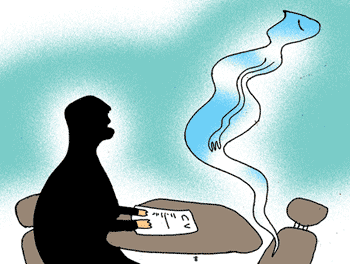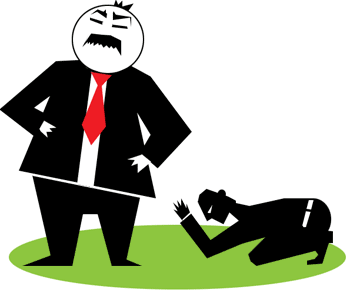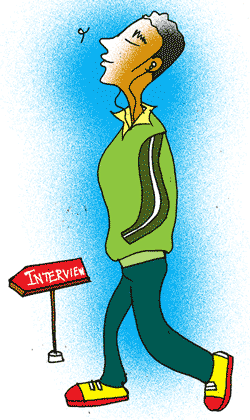
Now that your CV has done its job and fetched you an interview call, it is your chance to capitalise on this opportunity. While most of us worry about the type of answers we should provide to the questions asked in the interview, very few of us pay attention to things we should not say during the interview. So let's take a look at some of the things that you should avoid at your job interview:
What salary will I get?
All of us are curious about the salary offered for the position we are being interviewed for but there is more to a job interview than just money matters. Other things like the job profile, chances to grow in the company and industry, doing something that interests you are other crucial aspects.
If you initiate salary discussions, it makes you look money-minded and gives the impression that you will jump jobs for a couple of thousand rupees. Never bring up money matters, let the interviewer make the first move.
What exactly does the company do?
This is one of the most dreadful questions you could ask. You need to study the company (no matter how small it is) and its business before you go for the interview. Not knowing about the company shows your lack of preparation and interest in the job. Even if you don't know what the company does, do not give away your ignorance by asking a question like this.
Kshipra Singh is a contributor to www.CareerRide.com which provides answers to questions asked in a technical and non-technical interview & connects you to potential employers.

No bad-mouthing your employer or boss. During the interview you might be asked for the reason you left or want to leave your employer or what your relationship with your last boss was like. While it might be tempting to discuss how badly you were treated by a 'tyrant' or how your boss tortured you with impossible deadlines and late hours, saying derogatory things about him/her will reflect on you. You may be perceived as immature, unable to handle the pressures of work, or just indiscreet. A more ominous possibility is your interviewer and current boss actually know each other, which might mean trouble for you.
And this dude on the phone, like, you know, just would not listen...
A job interview needs to be kept formal, and slang (wanna, gonna, bro etc) should be restricted to more social occasions. Using slang will give the impression of you being immature or simply unaware of the proper etiquette required in an interview. Both of which do not reflect too well on you.
I don't have any weaknesses.
Sure, you can write an 1,000-word essay when asked about your strengths but most of us don't like to admit our weaknesses. However, when it comes to your job and to your job interview, it is important to identify your weaknesses and work on improving upon them. In most cases it is better to offer a weakness that is loosely related to your job. If you have offered a weakness that is directly related to your job, remember to mention what you are doing to improve yourself.
I don't have any questions.
At the end of an interview, most interviewers will give you the chance to ask them questions. If you respond by saying 'I don't have any questions', it might give the impression of you being disinterested. If something does not come to mind immediately, take a minute to go over your interview and see if there is anything you could ask about. Make sure, however, that they are relevant to the company and the job you have applied for.

Do not bring up issues like vacation time, bonuses and the like at your first interview with a company. If these issues are critical to your particular field, either let the interviewer take the initiative or wait for the second round of interviews. Questions like these demonstrate a 'what can you do for me' attitude instead of 'what I can do for you'.
There was this deal that went awry, and we lost a ton of money...
Do not discuss confidential information about your last employer, even if the interviewer is the one to bring it up. It is not a good idea to reveal the business secrets of your last employer during an interview. This raises questions about your integrity and discretion.
Traffic was a pain in the a***.
Again, a job interview is a formal discussion. It is not a conversation you are having with your friends where you can use swear words. While some of us use these liberally at work, at an interview it does not show you in a very positive light.
When will you let me know if I got the job?
Try not to be over-eager or aggressive about getting the job. Thanking the interviewer for his/her time and saying that your are looking forward to working with the company is enough to show that you are keen on the job. Do not ask when you will hear from the company and do not ask if you should call later or the next day to find out if you have been selected. If you have managed to convince the interviewer that you are the best person for the job, they will be eager to get in touch with you.